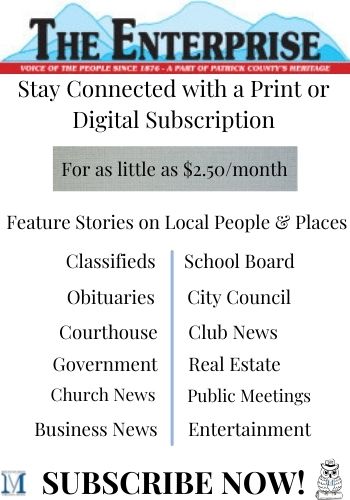 As early as January 1, mobile carriers may begin shutting down their 3G networks, making many older cell phones unable to receive calls and texts – including calls to 911 – or use data services. As such, the State Corporation Commission (SCC) encourages Virginians to begin preparing for 3G retirement now.
As early as January 1, mobile carriers may begin shutting down their 3G networks, making many older cell phones unable to receive calls and texts – including calls to 911 – or use data services. As such, the State Corporation Commission (SCC) encourages Virginians to begin preparing for 3G retirement now.
Mobile carriers are dropping 3G to make room for more advanced network services, including 5G. In addition to 3G mobile phones and certain older 4G mobile phones that do not support Voice over LTE (VoLTE or HD Voice), this update will affect other products using 3G network services, including certain medical devices, tablets, smart watches, vehicle SOS services, and home security systems.
AT&T announced that it will finish shutting down its 3G network by February 2022.
Verizon announced that will finish shutting down its 3G network by December 31, 2022.
T-Mobile announced that it will finish shutting down Sprint’s 3G CDMA network by March 31, 2022 and Sprint’s 4G LTE network by June 30, 2022. It also announced it will shut down T-Mobile’s 3G UMTS network by July 1, 2022 but has not yet announced a shutdown date for its 2G network.
Keep in mind that – even if your carrier is not listed above – you may still be affected. Many carriers, such as Cricket, Boost, Straight Talk and several Lifeline mobile service providers utilize AT&T’s, Verizon’s and T-Mobile’s networks.
Some carrier websites provide lists of devices that will no longer be supported after 3G networks are shut down. You may need to upgrade to a newer device to ensure that you can stay connected, and carriers may be offering discounted or free upgrades to help consumers who need to upgrade their phones.
If unsure about the status of your device, contact your mobile provider or consult your provider’s website for more information about their 3G retirement plan. If you purchased your phone independent of a mobile provider, you should be able to check whether your device is 4G LTE enabled (with VoLTE or HD Voice) by checking your phone’s settings or user manual, or by searching your phone’s model number on the internet, to determine whether you need to purchase a new device or install a software update.
In addition, although they do not cover the cost of new devices, other FCC programs may be able to assist eligible consumers with the cost of phone or internet services:
The FCC’s Lifeline program may be able to assist eligible consumers in getting connected to phone and internet services. The program provides a discount on phone service for qualifying low-income consumers to ensure that all Americans have the opportunities and security that phone service brings, including being able to connect to jobs, family and emergency services.
In addition, the FCC’s Emergency Broadband Benefit Program provides a temporary discount of up to $50 per month toward broadband service for eligible households during the COVID-19 pandemic.








